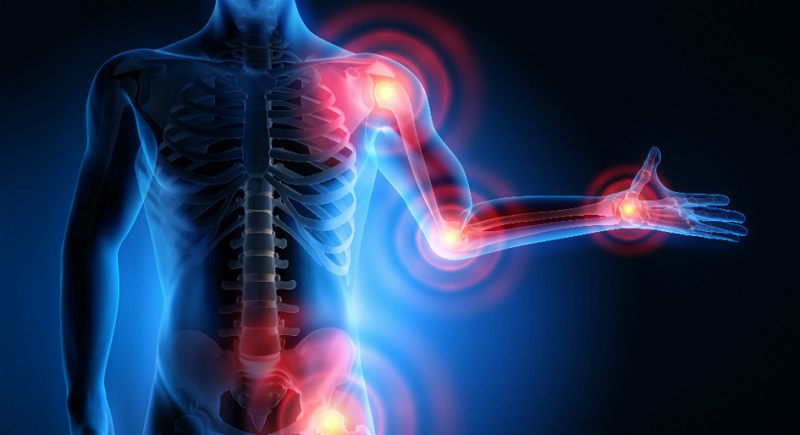Musculoskeletal pain is pain that troubles ligaments, bones, and muscles. The causes of musculoskeletal pain can be many. Sometimes muscle pain occurs by the everyday wear and tear of normal activities. Muscles may also get strained if you do excessive exercise or during periods of physical exertion. Tendonitis, bursitis, sprains, and fractures also lead to muscular injury.
There are several symptoms that can happen with a variety of musculoskeletal pain conditions. When you visit your doctor, the healthcare expert will check your symptoms and see what kind of treatment is needed. The treatment options will rely on the severity of your condition. Common causes of musculoskeletal pain comprise-
Fibromyalgia and Other Symptoms:
A common reason for muscular pain among women is fibromyalgia. The symptom is identified as widespread pain across the body, including legs, feet, shoulders, buttocks, and even the hands. Women who experience fibromyalgia often complain of very painful sex. Women having fibromyalgia symptoms often find difficulty falling asleep, feeling fatigued, tingling or numbness in the extremities, and irritability. It can also cause severe depression.
The symptoms of fibromyalgia may vary depending on the area of the stiff muscles.
Sometimes, they may just be localized pain. Many times, the pain may extend into the shoulders and arms, and even to the legs. However, weakness of muscle is the most common cause of fibromyalgia. Weakness occurs in limbs and is typically worsened when you stand for a long time or move too much.
Musculoskeletal conditions that cause pain comprise tendonitis, bursitis, tendinitis, tendon rupture, myofascial pain and trigger points, and cystitis. Tendonitis happens to be the most common reason for muscle pain, especially in athletes. The symptoms comprise clicking and popping and stiffness in the tendons. If your tendon is ruptured, it can lead to permanent damage if it remains untreated. Trigger points, which cause localized muscle pain, remain very specific to every person.
Treatment of Fibromyalgia & Other Musculoskeletal Pain-
Prescription medicines like Pain O Soma 500Mg and Pain O Soma 350Mg as well as the use of non-steroidal anti-inflammatory drugs (NSAIDs). Some doctors may avoid using NSAIDs, and just Pain O Soma 500mg or 350mg tablets. NSAIDs have a tendency to increase the risk of ulcers, and bleeding. Non-steroidal anti-inflammatory medicines can help remove some symptoms but are not effective for everyone. These prescription medicines are given to you when the doctor calculates its effectiveness and risk.




